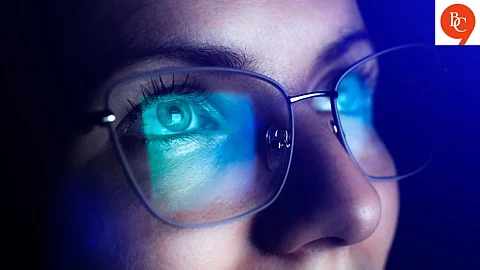

In 2025, digital eye fatigue has cemented itself as a modern-age health concern, with more people than ever spending prolonged hours glued to screens.
Whether it's hybrid work models, binge-worthy content, AI-based productivity tools, or online learning—our eyes are bearing the brunt of this digital dependence. But amidst this screen-centric era, a familiar accessory has made a strong comeback: blue light glasses, now redesigned and powered by enhanced technology.
The Return of the Blue Light Shield
First popularised in the late 2010s, blue light glasses were initially marketed as a simple filter to block the high-energy visible (HEV) blue light emitted by screens.
While their popularity dimmed for a few years due to mixed research and minimal innovation, the rising cases of digital eye strain, sleep disturbances, and even mental fatigue in 2024 triggered a fresh wave of interest.
Is Digital Eye Fatigue?
Before diving into the tech side, it's important to understand what digital eye fatigue (also known as Computer Vision Syndrome) actually entails. According to ophthalmologists, it includes a group of eye- and vision-related problems resulting from prolonged screen time.
Key symptoms include:
Dry or irritated eyes
Blurred vision
Headaches
Neck and shoulder pain
Difficulty focusing
Disrupted sleep cycles due to screen exposure at night
And it's not just professionals. Even Gen Alpha, the youngest digital natives, are now reporting symptoms of screen-induced fatigue, thanks to increased exposure from online learning platforms and AI toys.
Blue Light Glasses 2.0: What’s New?
The blue light glasses of 2025 are not just about tinted lenses. Brands are integrating AI, biometric sensors, and adaptive filtering technology to offer real-time eye care. Here's what the new-gen glasses bring to the table:
1. Smart Filtering Lenses
These lenses now adapt to ambient lighting and screen brightness, adjusting the blue light filter percentage automatically. Whether you're gaming at night or working under fluorescent lighting, the glasses fine-tune the tint in real-time.
2. Biometric Monitoring
Several premium models come equipped with miniature sensors that monitor blink rate, eye moisture levels, and pupil dilation—alerting users when it's time to rest their eyes or hydrate. Some even sync with health apps for comprehensive well-being tracking.
3. Anti-Glare & Anti-Fatigue Coatings
2025’s coatings go beyond simple anti-reflective features. They actively reduce digital flicker, eliminate ghosting, and improve contrast perception, helping reduce cognitive load during long hours of digital use.
4. Style Meets Function
With Gen Z and Alpha’s obsession with aesthetics, brands like Ray-Ban, Lenskart Air, and Bose have launched blue light glasses that combine fashion with function—think oversized transparent frames, vintage round glasses, and even audio-enabled smart glasses.
Are They Actually Effective?
While earlier skepticism around blue light glasses was based on limited evidence, recent studies support their upgraded role in managing screen fatigue.
According to a 2025 study published by the International Journal of Ophthalmic Research, individuals using adaptive blue light glasses reported a 32% decrease in digital eye strain symptoms and 23% improvement in sleep quality over a 60-day period. Though they’re not a one-stop solution, experts now agree they are a “valuable preventive tool” when combined with digital hygiene practices.
With more professions becoming screen-reliant, the need for eye protection is crossing demographics.
Digital fatigue isn’t going away anytime soon—but how we deal with it is evolving. Blue light glasses, now infused with AI and adaptive tech, are a testament to how wellness can merge with wearables. In a world where screens are our second home, these modern shields may just be the next must-have health accessory in your everyday toolkit.
